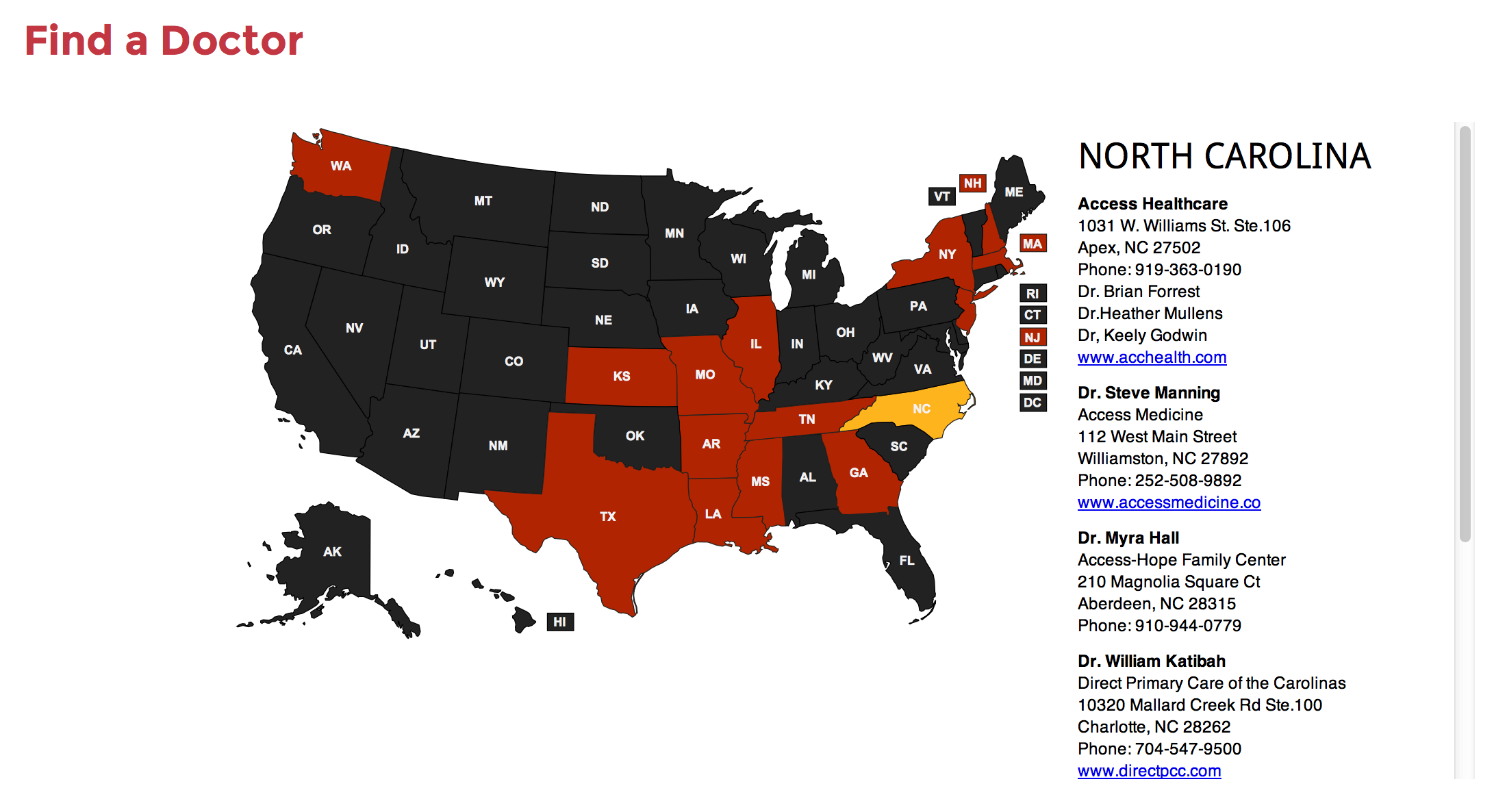Direct Primary Care (DPC) has been around for years, but it’s a growing market that continues to pique physician interest. In exchange for a monthly or annual fee that covers a defined package of services, patients have guaranteed unlimited access to their physicians. DPC is similar to concierge medicine, but the key difference is that these practices deliver basic health care at an affordable price with no insurance billing whatsoever. As of 2014, over 4,400 doctors in the US had taken the plunge– a significant increase from just 146 in 2005. You can check out a national directory here:
Fortunately, North Carolina ranks as one of the top DPC-friendly states. Unlike other state legislatures, ours does not subject these practices to government price controls, capped patient numbers, or a defined menu of services. Some even regulate these providers under the Department of Insurance (DOI) – the interpretation being that monthly cash payments to access medical care should be classified as insurance.
Since DPC typically does not deal with insurance, many may be wondering how it can thrive now that Obamacare requires individuals and employers to purchase government-approved health plans that cover preventative care. Interestingly, the federal health law does endorse DPC as long as it is accompanied by catastrophic policies that include benefits outside of primary care.
Read more from my latest in Forbes here.



